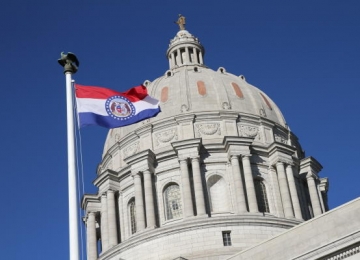by Otto Fajen, MNEA legislative director
CAPITOL ACTION DAYS
Capitol Action Days are part of the Association's plan to promote positive policy for public education. MNEA's Capitol Action Days occur regularly on Wednesdays during legislative session and continued this week on March 1st! For more information and to register for your Capitol Action Day, please visit https://www.mnea.org/CAD
SENATE EDUCATION AND WORKFORCE DEVELOPMENT COMMITTEE
The committee heard four bills on February 28:
SB 17 (Lauren Arthur) to revise school funding. The bill would increase the base per-pupil amount, known as the State Adequacy Target (SAT), and increase the district poverty pupil weight for many districts. These changes are expected to increase the SAT from $6375 to $6679 and increase total formula cost by about $284 million. The SAT will increase about 4.8%. This increase is greater than then entire net increase in the SAT since the current formula was created in 2005. The Association supports this long overdue reform to provide recognition of increasing school costs.
SB 255 (Rick Brattin) to create a new program to use appropriated state funds to pay for private school costs for income-qualified students. The Association believes that state-mandated parental option plans compromise free, equitable, universal, and quality public education for every student and opposes the bill.
SB 304 (Eigel) to allow charter schools to be sponsored by outside entities (other than the local school board) and operate in many districts around the state. The Association opposes the bill. Missouri NEA believes that charter schools should be sponsored by and accountable to the local community through the elected school board and approved only after an impact study is conducted by the district to consider the proposal. The Association also believes that all charter schools should be subject to the same standards of accountability, transparency, and respect for the rights of students, parents, and staff as are applicable to traditional public schools.
SB 360 (Koenig) to revise the existing tax credit voucher program enacted in 2021 by HB 349. The bill would expand the program by removing the cap on the maximum total of tax credits, increasing funding per student, and removing the family income limitation. The Association opposes the bill.
In addition to hearing bills, the committee approved SB 136 (Karla Eslinger) on February 28. The bill requires students to do career plans in high school and to fill out the FAFSA application for federal student aid.
HOUSE ELEMENTARY AND SECONDARY EDUCATION COMMITTEE
The committee held scheduled hearings on HB 106 (Jerome Barnes) and HB 634 (Ann Kelley) on March 1. HB 106 (Jerome Barnes) to require DESE to create language developmental milestones for children who are deaf or hard of hearing.
The Association spoke in opposition to HB 634. The bill creates procedures and requirements for schools to notify parents regarding changes in the status of a child, requires prior parent approval for access to school health services, and bans any instruction regarding sexual orientation or gender identity. The Association is concerned that the language is intrusive and overbroad and will limit the ability of educators to understand and meet student needs.
Lengthy testimony on HB 106 and lengthy testimony in opposition to HB 634 (Ann Kelley) caused the committee to postpone the scheduled hearings on HB 482 (Ben Baker) and HB 627 (Christofanelli). These bills create new provisions concerning instruction, access to information about school finance and curriculum, and parent information access. The Association is concerned that some of these provisions may adversely affect the freedom of teachers to provide the honest education our students deserve and opposes both bills.
The committee also voted to approve HB 809 (Michael O'Donnell). The bill requires DESE to convene a work group to develop and recommend academic performance standards relating to the half credit course in personal finance required for high school graduation.
OPTIONAL COURSE IN THE BIBLE
The Senate gave final approval to SB 34 (Karla May) on March 2. SB 34 is a symbolic bill stating that public schools may offer elective courses in the Hebrew and Christian scriptures. Existing state law already provides that books of a religious nature may be used in public schools as part of instruction in elective courses in literature and history, if such books are used in a manner consistent with the Establishment Clause of the First Amendment to the United States Constitution.
PROP C SALES TAX ON GROCERIES
The Senate gave first-round approval to SS/SB 131 (Brattin) on March 1. The perfected bill includes an amendment to include SB 161 (Mary Elizabeth Coleman) to remove the one cent of Prop C sales tax for schools currently applied to groceries. The regular state sales tax does not currently apply to groceries, and very few states still have state sales tax on groceries. Such a tax is considered regressive, since it has a proportionally higher impact on low-income taxpayers. However, repeal of this portion of Prop C sales tax will remove about $154 million per year from the School District Trust Fund. If this measure is adopted, the Association urges the legislature to offset this reduction in school revenues with another revenue source.
RESTRICTIONS ON THE INITIATIVE PETITION PROCESS
The Senate Local Government Committee voted to approve HCS/HJR 43 (Henderson) and SJR 28 (Carter) on February 27. HJR 43 seems likely to the primary vehicle for further debate this session, since it has already been approved by the House. The Association is concerned that these measures will make it more difficult for Missouri citizens to bring forward and gain approval on measures of interest brought by the initiative petition process and opposes both of these joint resolutions.
Find archived Legislative Updates at www.mnea.org/legupdate.

